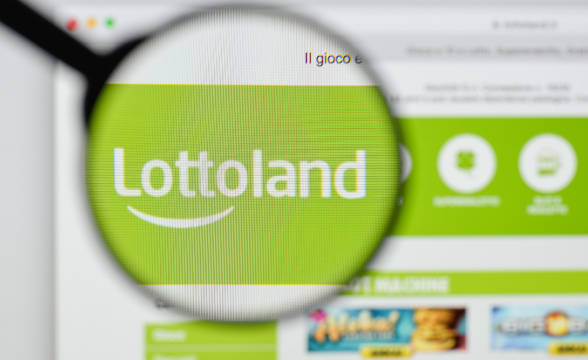Gluecksspiel (GGL), the new German federal gambling authority, announced that it is prepared to handle hundreds of cases against illegal gambling operators yearly. The authorities have already started action against the largest offenders still actively advertising in the country despite lacking a license.
The new federal regulator stepped into power on July 1. Its initial priority is combating illegal online gambling. The GGL can impose fines of up to €500,000, freeze payment gateways and administer IP address blocks.
Lottoland among the First to Draw the Regulator’s Ire
The GGL has already targeted gambling operator Lottoland and it’s subsidiary Lottohelden. The regulator requested internet providers to block the company’s web pages www.lottohelden.com, www.lottoland.com, and www.lottohelden.de. According to Benjamin Schwanke, one of the two leading figures in the GGL, the operator was one of the biggest offenders and had been offering illegal gambling for years.
According to the regulator, Lottoland deceived customers into thinking they were participating in the official licensed German state lottery. Instead, betters were wagering on the outcome of the lottery draw with opaque odds and win conditions.
These offers cannot be permitted on the basis of the State Treaty on Gambling and have therefore already been prohibited.
Gluecksspiel
The Lottoland Group issued an official statement in reply to the bans. The company considers GGL’s request for internet providers to block their services illegal under EU law. The operator stated that it would use all legal means to protect its interests.
Lottoland holds various licenses in European countries, including Malta, Great Britain, Ireland, and Sweden. It has been trying to get a German gambling license since 2017. As of now, its application is still pending.
Gluecksspiel Prioritizes Consistency and Effectiveness
German regulators keep a white list of approved operators to distinguish illegal from legal gambling. Any gambling provider not included in this list is considered illegal. GGL’s Benjamin Schwanke noted that offending parties would first receive an official warning. If a company continued to operate, the regulator would issue fines and pursue further action.
We will remove players from the market who do not comply with the rules of the State Treaty on Gambling.
Benjamin Schwanke
Schwanke admitted that since many illegal operators are based abroad, fines are rarely effective. As a result, the GGL cooperates with service providers such as credit card companies and banks to make a meaningful impact in the fight against illegal gambling.
The GGL also plans on deepening its collaboration with the country’s public prosecution and the police, which will process all criminal charges issued by the gambling authority. To that end, the regulator is promoting the establishment of a public prosecutor’s office specializing in Internet gambling in Halle an der Saale.
Gluecksspiel will assume all of its duties on January 1, 2023, becoming Germany’s sole gambling authority. The regulator is facing an uphill battle as it will need to bring order to a previously segmented and inconsistent regime.


